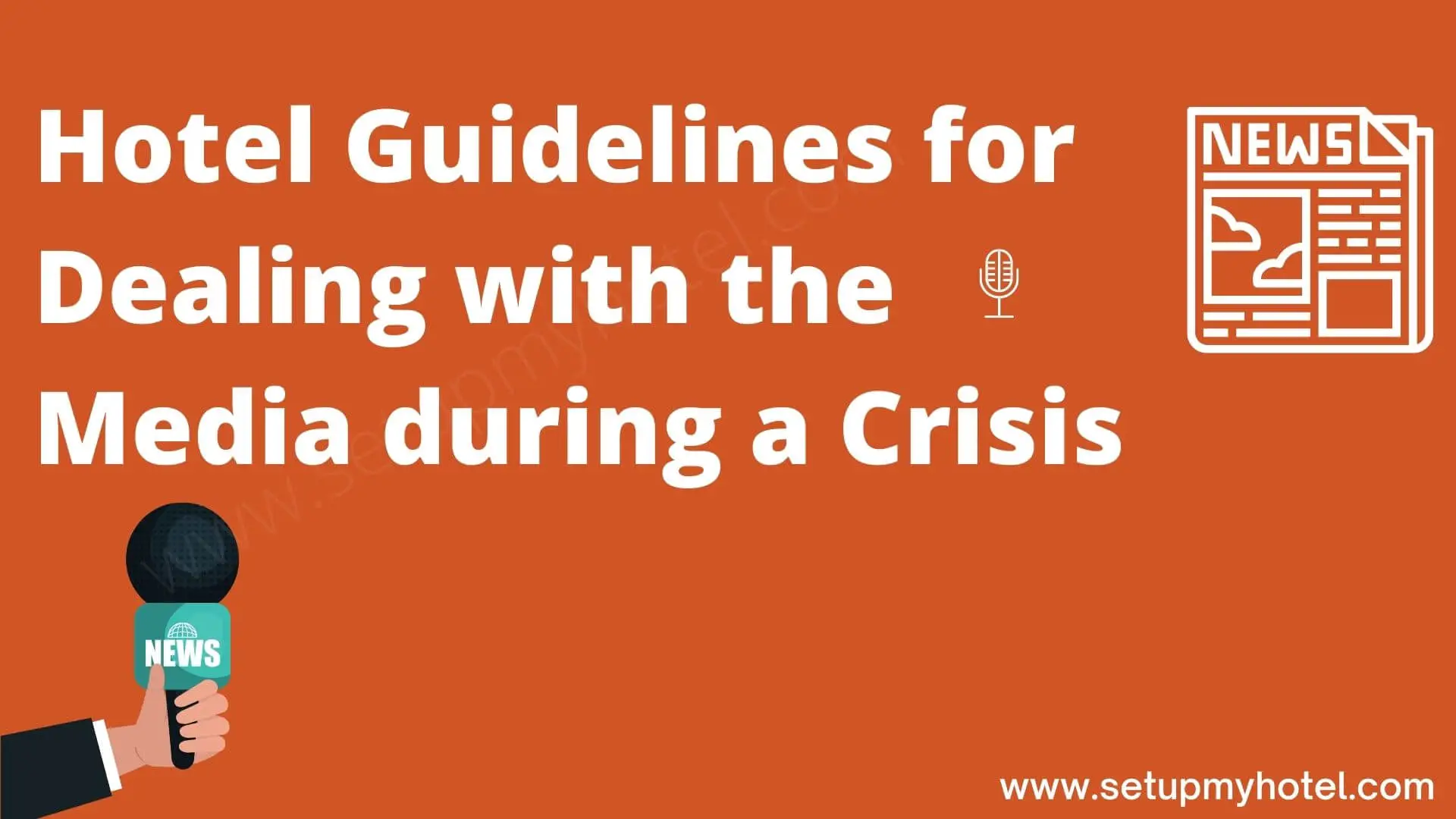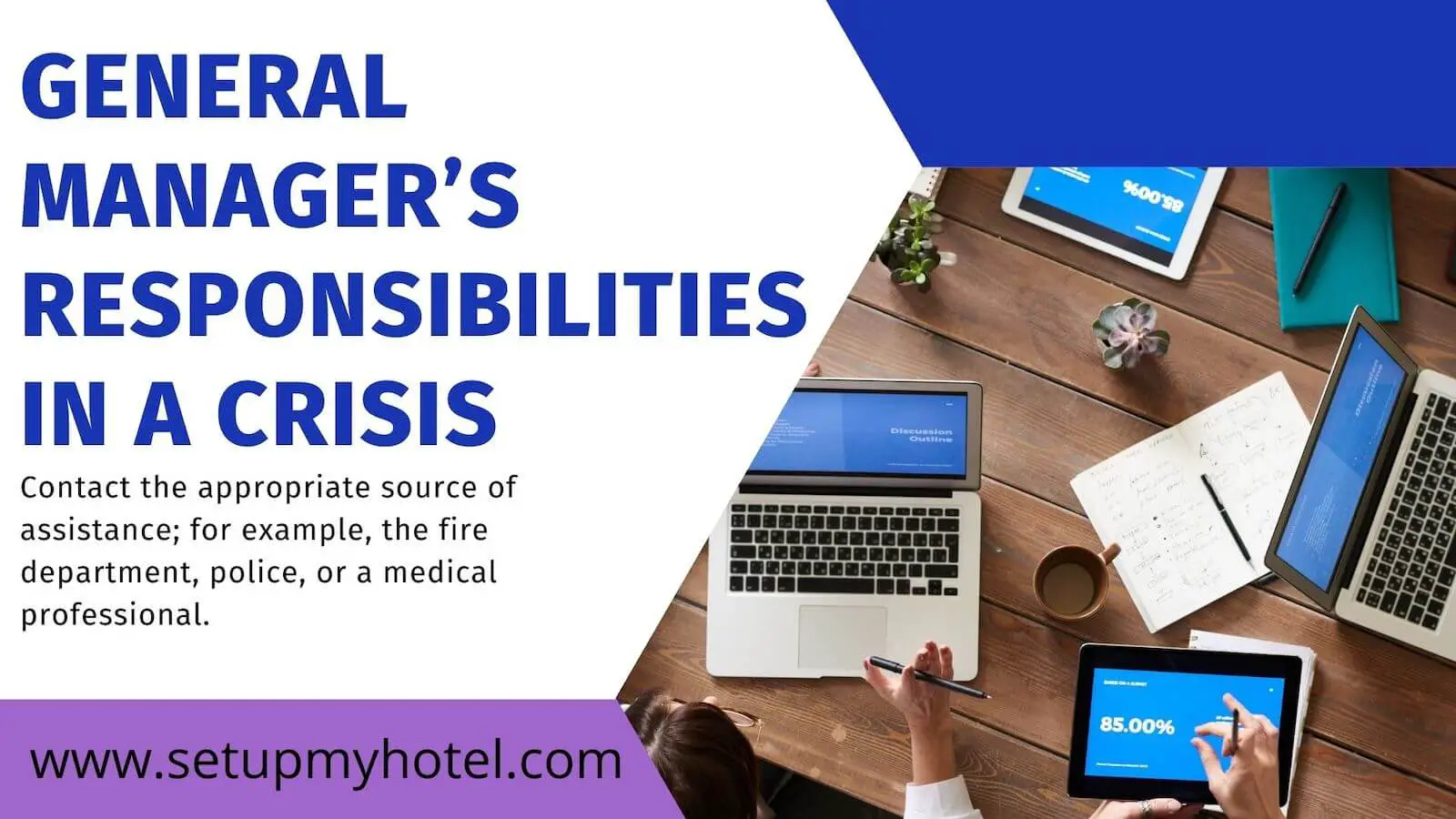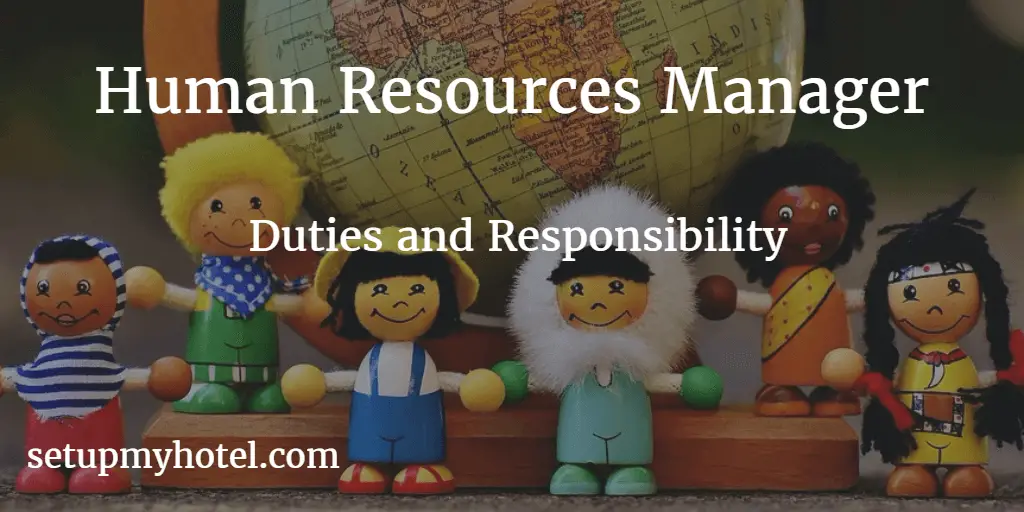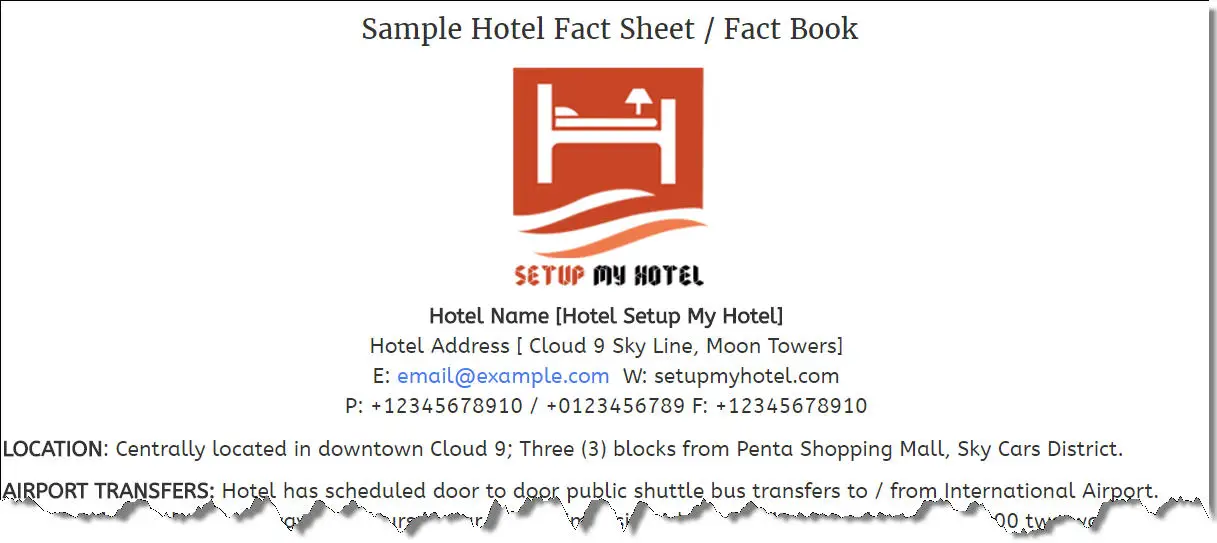Management – Hotel Guidelines For Dealing With The Media During A Crisis

Hotel Guidelines For Dealing With The Media During A Crisis When a crisis occurs in a hotel, it’s important to ...
Read more
Management – General Manager’s Responsibilities In A Crisis

General Manager’s Responsibilities in a Crisis 1. Take the immediate action required to ensure the safety of guests and employees. ...
Read more
Security – Hotel Fire Emergency Plan Sample
![The safety and well-being of our guests and staff are our top priorities. This Hotel Fire Emergency Plan outlines procedures and protocols to be followed in the event of a fire or fire-related emergency. All staff members are expected to be familiar with this plan and undergo regular training to ensure a swift and effective response. 1. Emergency Contact Information: Fire Department: [Local Emergency Number] Hotel Emergency Number: [Hotel-specific emergency number] Hotel Security: [Security contact details] General Manager: [Manager's contact details] Hotel Address: [Full address] 2. Fire Detection and Alarm Systems: Smoke Detectors: Installed in all guest rooms, public areas, and back-of-house areas. Fire Alarms: Audible alarms will sound throughout the hotel in case of fire detection. Manual Pull Stations: Located near exits and stairwells for immediate activation. 3. Emergency Evacuation Procedures: Evacuation Routes: Clearly marked evacuation routes are posted on guest room doors and in public areas. Assembly Point: Designated assembly point is [Specify location]. Floor Wardens: Assign and train floor wardens for each floor to assist in the evacuation. 4. Fire Suppression Systems: Sprinkler Systems: Installed throughout the hotel to suppress and control fires. Fire Extinguishers: Strategically placed and regularly inspected. Staff trained in proper usage. 5. Guest Communication: In-Room Information: Fire safety information is available in guest rooms. Public Announcements: In case of an emergency, use the PA system to provide clear instructions to guests. 6. Staff Training: Regular Training Sessions: Conduct regular fire safety training for all staff members. Drills: Periodic fire drills to ensure staff familiarity with evacuation procedures. 7. Guest Education: Welcome Packet: Include fire safety information in the welcome packet for guests. Digital Platforms: Utilize the hotel website and mobile apps to provide fire safety details. 8. Emergency Equipment: Emergency Lighting: Ensure all exit routes are well-lit during power outages. Emergency Evacuation Chairs: Available for guests with mobility challenges. First Aid Kits: Located at designated areas throughout the hotel. 9. Coordination with Local Authorities: Regular Meetings: Coordinate with local fire departments for joint training exercises. Emergency Services Access: Provide easy access for emergency services to the hotel premises. 10. Continuous Improvement: Review and Update: Regularly review and update the emergency plan based on feedback, lessons learned, and changes in regulations. Conclusion: The Hotel Fire Emergency Plan is a living document that requires active participation and commitment from all staff members. By following these guidelines, we can ensure the safety and well-being of our guests and staff in the event of a fire or fire-related emergency. Stay vigilant, be prepared, and prioritize safety at all times.](https://setupmyhotel.com/wp-content/uploads/2023/09/Hotel-Fire-Emergency-Plan-Sample.jpg)
Hotel Fire Emergency Plan Sample The safety and well-being of our guests and staff are our top priorities. This Hotel ...
Read more
Management – Ways For Improving Hotel Green Policy

Ways for Improving Hotel Green Policy One of the ways that hotels can improve their environmental impact is through the ...
Read more
Finance – Controlling Loss And Wastage In Food And Beverage ( F&B ) Operations

Controlling Loss And Wastage In Food And Beverage Operations Efficient management of food and beverage operations requires a meticulous approach ...
Read more
DBR / DRR – Hotel Daily Business Report / Manager Report
Hotel Daily Business Report sample / DBR / Manager Report sample Every hotel produces a ‘daily business report’ AKA ‘Manager ...
Read more
Hotel Human Resources Manager | HR Director – Job Description

Job Description, Duties, Interview Questions and Salary for Hotel Human Resources Manager Position As a Hotel Human Resources Manager, your ...
Read more
Executive Secretary To Hotel General Manager – Job Description

Job Description, Duties, Interview Questions and Salary for Secretary to Hotel General Manager | Executive Secretary As a Secretary to ...
Read more
Hotel Fact Sheet Sample / Sample Hotel Information Sheet / Fact Book

Hotel Fact Sheet Sample / Hotel Fact Book Sample The purpose of a hotel fact sheet is to provide potential ...
Read more
Assistant General Manager / Asst. Hotel Manager Job Description

Job Description, Duties, Interview Questions and Salary For Assistant General Manager in Hotels The role of an Assistant General Manager ...
Read more









